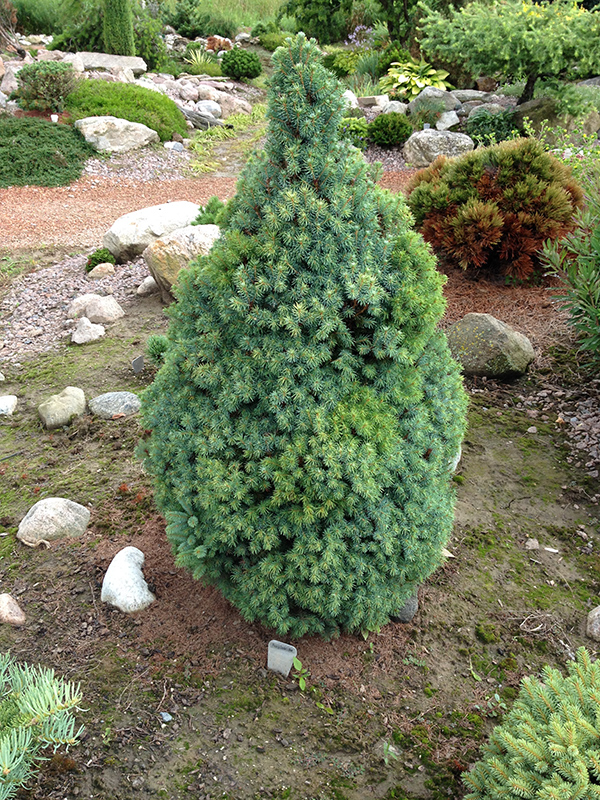Plant Finder
Sander's Blue Dwarf Spruce*
Picea glauca 'Sander's Blue'
* This is a "special order" plant - contact store for details
Height: 20 feet
Spread: 10 feet
Sunlight:
![]()
![]()
Hardiness Zone: 4a
Description:
An attractive variety that displays a medley of foliage colors from steel blue to sea green depending on maturity of needles; neat conical shape and very slow growing, this selection is perfect as an accent or for containers
Ornamental Features
Sander's Blue Dwarf Spruce is primarily valued in the landscape for its distinctively pyramidal habit of growth. It has attractive bluish-green evergreen foliage which emerges steel blue in spring. The needles are highly ornamental and remain bluish-green throughout the winter.
Landscape Attributes
Sander's Blue Dwarf Spruce is a dense evergreen tree with a strong central leader and a distinctive and refined pyramidal form. It lends an extremely fine and delicate texture to the landscape composition which can make it a great accent feature on this basis alone.
This is a relatively low maintenance tree. When pruning is necessary, it is recommended to only trim back the new growth of the current season, other than to remove any dieback. It has no significant negative characteristics.
Sander's Blue Dwarf Spruce is recommended for the following landscape applications;
- Accent
- Vertical Accent
Planting & Growing
Sander's Blue Dwarf Spruce will grow to be about 20 feet tall at maturity, with a spread of 10 feet. It has a low canopy, and is suitable for planting under power lines. It grows at a slow rate, and under ideal conditions can be expected to live for 50 years or more.
This tree does best in full sun to partial shade. It prefers to grow in average to moist conditions, and shouldn't be allowed to dry out. It is not particular as to soil type or pH. It is quite intolerant of urban pollution, therefore inner city or urban streetside plantings are best avoided, and will benefit from being planted in a relatively sheltered location. Consider applying a thick mulch around the root zone in winter to protect it in exposed locations or colder microclimates. This is a selection of a native North American species.
* This is a "special order" plant - contact store for details
